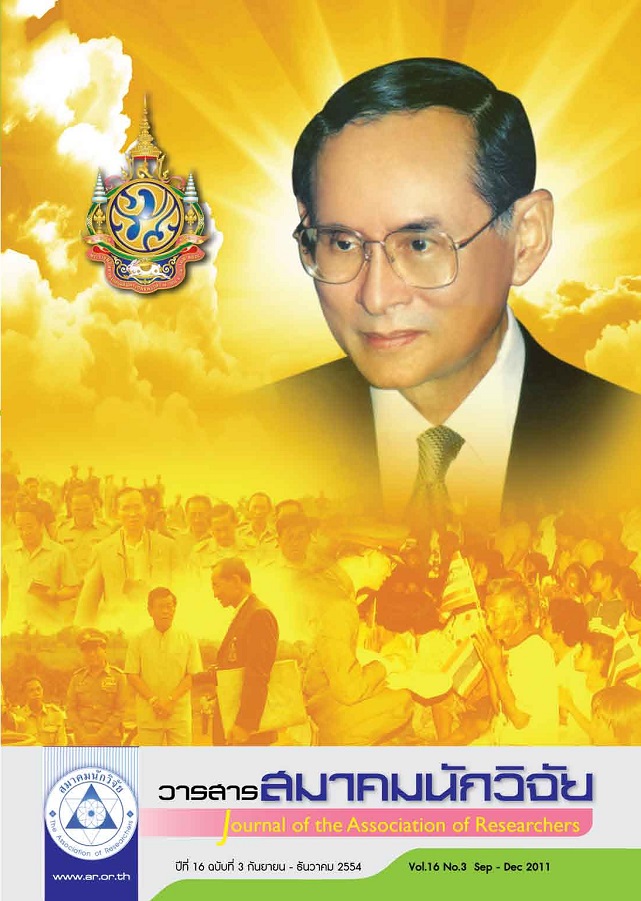capacity enhancing programme of thai food smes
Main Article Content
Abstract
This research aimed to create a training programme for continuous enhancing the Thai food SMEs. Survey on the current market food SMEs in Thailand was conducted in order to conclude for business characteristic based on its raw materials. Together with grouping awareness on food quality and safety and its incentive factors amongst them. K-means clustering was applied to classify food SMEs. Based on the level of awareness, the information of business owner profile in each group was identified as well as all relevant needs for food safety and quality management improvement. All information from the survey and analysis was then extracted for capacity enhancing programme for food SMEs in Thailand. According to the results, “semi-tailor made capacity enhancing program” was planned. It proposed the flexible skill sets which suitable with appropriate entrepreneurs based on their profile. Since we found the approach to successful food SMEs in safety and quality management would obviously vary by awareness level on food safety and quality system implementation. Having two food safety awareness levels which was different in profile of education, business operation model, enterprises’ size and income. Surprisingly, we found no association between difference of SME’s product characteristics and awareness level. Interestingly, incentive factors of low awareness group food quality and safety adoption was firm’s productive capacity, current products rather than market forces like high awareness group. In high awareness SMEs, knowledge on the marketing-oriented was requested. Low awareness SMEs perceive aspects of quality and safety food management, processing technology were their initially capacity building programmes.
Article Details
บทความที่ปรากฏในวารสารนี้ เป็นความรับผิดชอบของผู้เขียน ซึ่งสมาคมนักวิจัยไม่จำเป็นต้องเห็นด้วยเสมอไป การนำเสนอผลงานวิจัยและบทความในวารสารนี้ไปเผยแพร่สามารถกระทำได้ โดยระบุแหล่งอ้างอิงจาก "วารสารสมาคมนักวิจัย"


